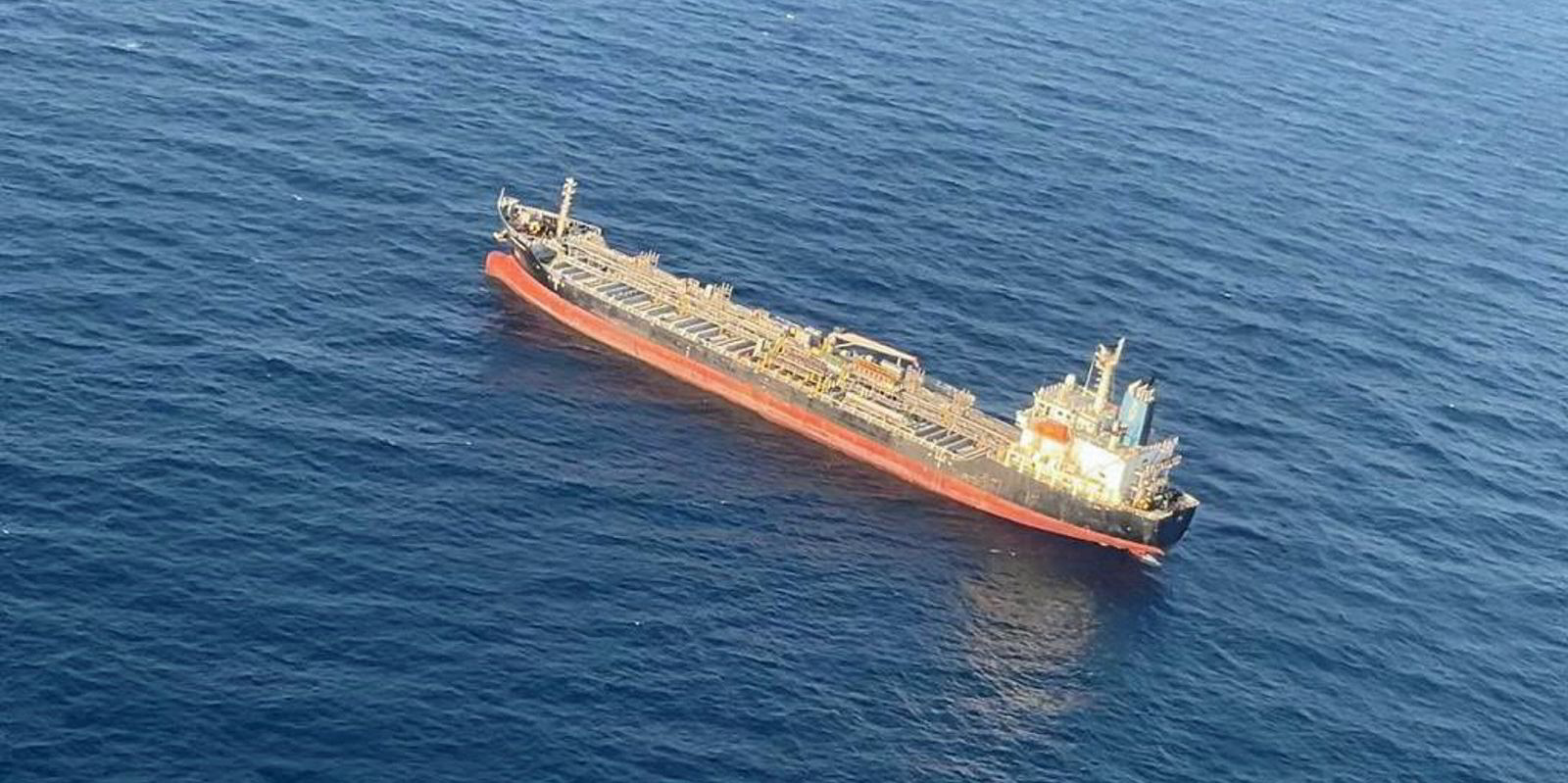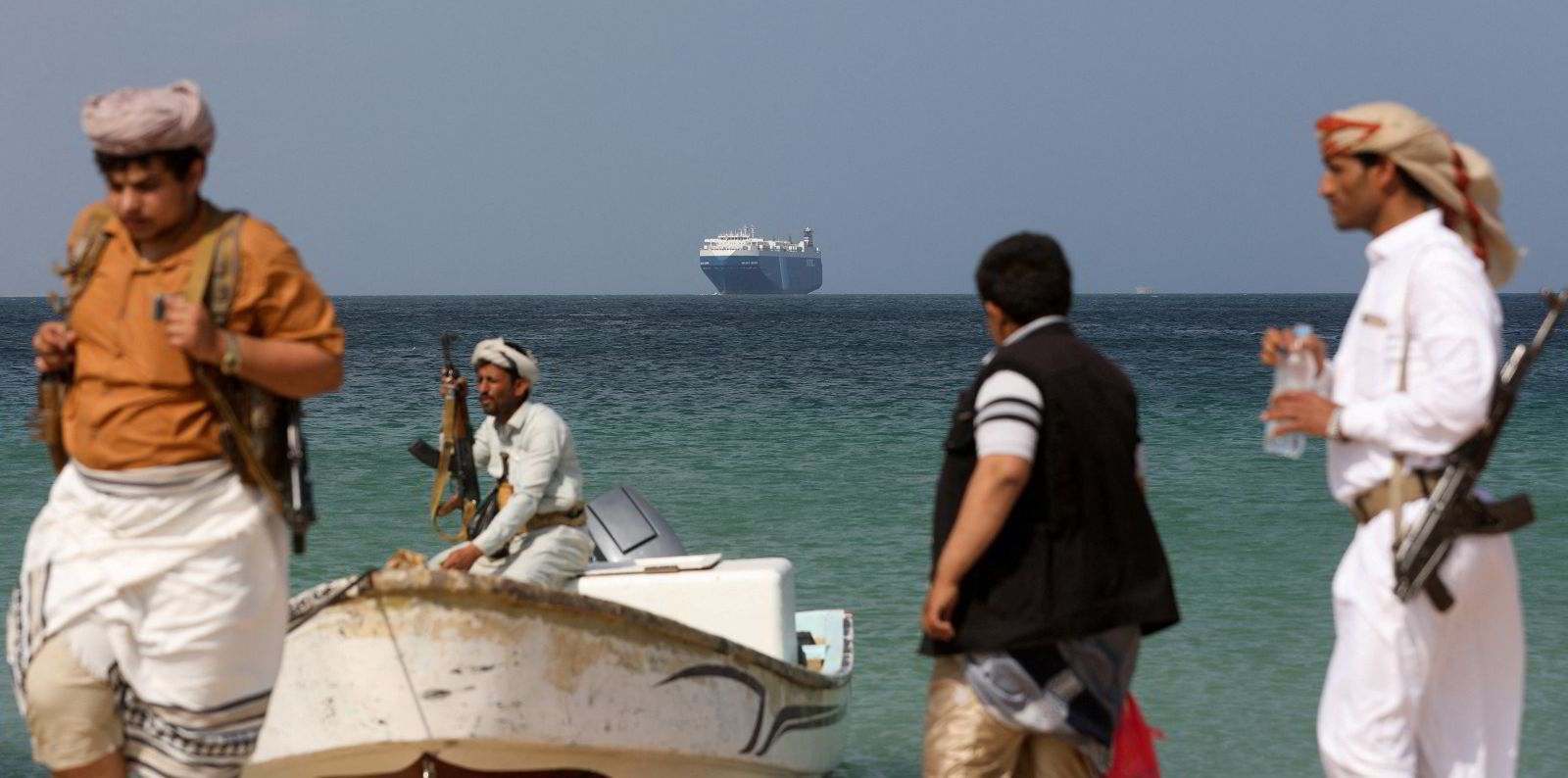A drone has struck an Ace Quantum Chemical Tankers vessel in the Indian Ocean far from the Houthi-controlled corner of Yemen that has been the launchpad for attacks against shipping for more than two months.
The attack came as Iran, which backs the Houthis, threatened to widen the maritime conflict by closing the Mediterranean Sea to shipping.
The UK Maritime Trade Operations office said on X that the attack by an unmanned aerial vehicle resulted in an explosion and fire on the vessel, which the Indian Coast Guard later identified as the 21,300-dwt chemical tanker Chem Pluto (built 2012).
The ship was in the Arabian Sea about 200 nautical miles (370 km) southwest of Veraval, India, at 0607 GMT on Saturday, the Royal Navy agency said.
“Authorities are investigating,” the office said. “Vessels are advised to transit with caution and report any suspicious activity to UKMTO.”
The Indian Coast Guard said there were 20 Indian seafarers on the ship and one Vietnamese crew member. None were injured, and the crew was able to put out the fire.
After receiving a distress call, the Mumbai rescue coordination centre asked merchant shipping in the vicinity to aid the ship.
The Chem Pluto is operated by Amsterdam-based Ace Quantum, according to data from Equasis. The company is a joint venture of Ace Tankers and Eastern Pacific Shipping, which is owned by Israeli billionaire Idan Ofer.
The ship is listed as owned by Sansho Kaiun of Japan, with technical management by Fleet Management. Flagged by Liberia, it has Gard as its insurance provider and its classification society is Japan’s ClassNK.
The assault on the Chem Pluto, if confirmed, would threaten to broaden the reach of the danger facing international shipping, particularly ships with links to Israel, since Houthi militants began targeting vessels in October.
The location of the incident puts it farther east than any of the attacks against shipping, according to a map published by the UK maritime security agency.
Houthi missile and drone attacks have been generally confined to waters of the Red Sea and Gulf of Aden.
Somali pirates are suspected of hijacking the 41,600-dwt bulker Ruen (built 2016) in the Arabian Sea on 15 December, but even that was farther west. The incident was the first hijacking by Somali pirates in years and involved far less sophisticated weaponry than an aerial drone.
The Houthis have been using Iranian-made drones, which can have ranges of up to 2,500 km.
On Saturday, Iranian media reported that a commander of Tehran’s Islamic Revolutionary Guards Corps threatened to close the Strait of Gibraltar if the US and its allies continued to commit what he described as “crimes” in Gaza, according to Reuters.
“They shall soon await the closure of the Mediterranean Sea, Gibraltar and other waterways,” brigadier general Mohammad Reza Naqdi said in a report by the semi-official Tasnim news agency.
The comment came a day after US officials placed more direct blame on Tehran for the attacks on shipping, by providing drones, missiles and tactical support to the Houthis.
“We know that Iran was deeply involved in planning the operations against commercial vessels in the Red Sea,” National Security Council spokeswoman Adrienne Watson said, according to CBS News.
“We have no reason to believe that Iran is trying to dissuade the Houthis from this reckless behaviour.”





